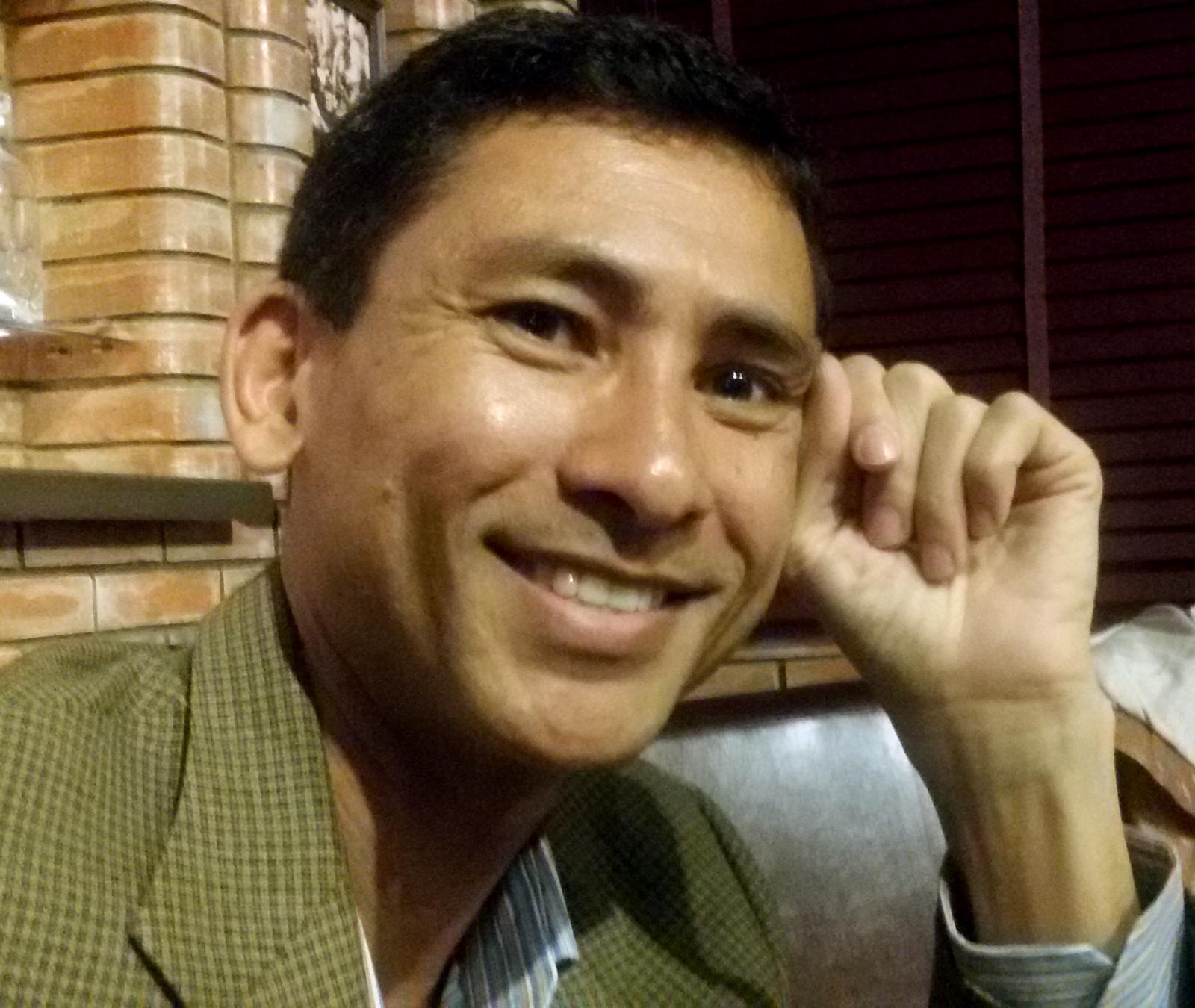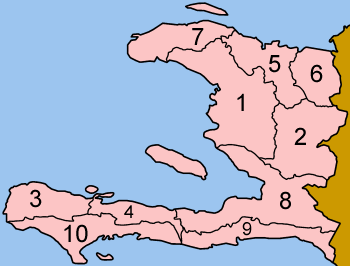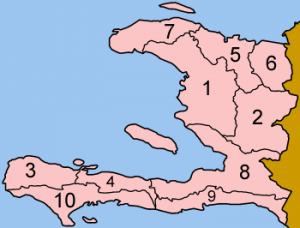Article Information
- ARTICLE_POSTED_BY: Haiti Place Staff
- ARTICLE_POSTED_ON: May 11, 2015
- Views : 1315
- Likes : 3
- Category : Business
- Description : <strong>The 11<sup>th</sup>&nbsp;Department is a professional platform that connects Haitians in the Diaspora, Haitians in Haiti, as well as Friends of Haiti. Marcel Wah, founder of the 11<sup>th</sup>&nbsp;Department, shared what made him start this network and how it helps Haitians achieve more</strong>.
Overview
 Marcel Wah, Founder of the 11th Department
Marcel Wah, Founder of the 11th DepartmentThe 11th Department is a professional platform that connects Haitians in the Diaspora, Haitians in Haiti, as well as Friends of Haiti. Marcel Wah, founder of the 11th Department, shared what made him start this network and how it helps Haitians achieve more.
What made you start the 11th Department?
I've had this idea for a very long time, ever since I got involved with Haiti issues in 1995. I realized that the Haitian Diaspora—practically all Haitians for that matter—needed a central place to connect, to know who and where they are, and to be able to communicate easily. Things are too scattered and isolated, and no one knows what this group is doing versus that group, what this community is doing versus that community. Everyone is working in silos.
I first attempted to launch this idea back in the late 90s, but people didn't quite understand it, so it died several times before I finally brought it back to life late last year.
The Diaspora seem to be more accepting of the fact that they need a platform that allows them to be more efficient and effective in what they are involved in and passionate about. They seem to want to connect more and more now with the different communities, and to be more pro-active in the development of Haiti. And not just Haitians in the Diaspora, but Haitians in Haiti as well. We are seeing many new members from Haiti registering on the website, which is a very good sign because we need that connection to be made.
 "Haiti departments numbered". Licensed under CC BY 2.5 via Wikipedia Commons
"Haiti departments numbered". Licensed under CC BY 2.5 via Wikipedia CommonsWhy did you call it the 11th Department?
When the idea originated it was actually the 10th Department because the Diaspora was referred to as the 10th department given that there were nine departments (regions) in Haiti. When President Aristide added a tenth department in Haiti, the reference to the Diaspora was then changed to the 11th Department.
How is the 11th Department helping the Diaspora to be more efficient?
The 11th Department gives the Diaspora a powerful tool to connect with like-minded people in their respective fields. So, if you are someone who is interested in healthcare, you can meet all the healthcare professionals on the platform. Those individuals can then come together to start discussing and debating about the issues in their field that they are passionate about, that they are interested in doing something about.
Therefore, it's really about collecting information, laying first the foundation, knowing who’s who, where we are, what we do, and the resources we have at our disposal. We can then start grouping in such a fashion that we say: “OK, those of you who are the educators let's go here, people who are the healthcare professionals let's go there, etc."
Within the groups you can have sub-groups of specialties. Within these specialties decisions can be made. People can identify issues, prioritize them, then tackle the most critical ones for Haiti that they can actually implement with the people in Haiti. I’m speaking of issues with “major” impacts (like Energy, Agriculture, etc.), not the small stuff, because any other way is ludicrous, a huge waste of time, energy, and capital.
What can people do on the platform now?
The platform is a social networking platform, meaning that whatever you can do on Facebook or LinkedIn you can do on the 11th Department. Actually, you can do even more because we have added tools that are not available on Facebook or LinkedIn. Many of the tools are available for free, while others are available at a nominal yearly fee. The aim is to help Haitians achieve more with little resources.
For example, you can have access to a complete e-commerce system so you can sell your products directly using your PayPal account, or other merchant account providers. The payments go straight into your account and are available immediately (with PayPal).
You can set up your own store and you'll be selling directly to your target audience, which is the huge difference of the 11th Department. You don't have to second-guess where you find the target audience—the people that you are interested in selling to, or reaching out to. The 11th Department members are Haitians and Friends of Haiti. There's no second guessing. You know who they are and how to reach them.
Also, information found on the 11th Department is relevant to Haiti. There is no wasted time in “searching” for what you might be interested in.
If you are pro-active and want people to know what you’re doing, then, publicize your events, post your news, share your documents (brochures, capability statements, reports, etc.), your projects, fundraise, run petitions, conduct a survey… You can do all of these things and much more without having to use a lot of third-party solutions, which can be costly, and time-consuming to manage.
Who is the 11th Department for?
It’s an inclusive platform, and everyone has access to the same tools, which levels the playing field. It is for all Haitians in the Diaspora, Haitians in Haiti, Friends of Haiti, and even the Haitian government. It is a platform where they can “voice” their successes, their concerns, their needs, their opinions (not gripes), work collaboratively, create partnerships, etc. Pretty much anyone who really want to come together for the collective purpose of joining others in their field, to get to know who is who, but also to get to know what is happening in his or her community and share what they do.
You can even chat with people who are online.
If you are a non-profit, you can fundraise, post your projects, seek out volunteers, and so on.
We also have a "Who’s Who" section for people to know who the influencers are, who are the people deserving of recognition, not just for the positive things they’ve accomplished, but also for their negative deeds. This is where you can really have a voice—you can review and rate the people who are there.
But if you want to access all of the tools, we make it very affordable for professionals, non-profits, and small businesses to upgrade their accounts.
By becoming an “Ambassador” level member, for example, you are telling everybody that you are an avid supporter of Haiti, and that you are committed to promoting her in whatever ways you can—whether speaking positively about her, working to solve the issues, sharing your experience, or buying Haitian products. The sky is the limit in terms of what you can do.
It's not enough for me to tell you. You have to join to see for yourself, and become either an active, or passive, member of the community.
What kinds of people have joined so far?
I'm really amazed at the quality of people that have joined. They are professional people that come from healthcare, education, technology, the arts, from all backgrounds. A lot of highly educated and very experienced individuals. We have many doctors and creative people as well. What we need to do now is to get those members to join the groups that are in their respective sectors.
This will allow people to start grouping with like-minded individuals so we can start the conversation about the issues. We can start identifying who the experts really are, where they are, what is the capacity, and what are the issues that we want to tackle together.
We have a very active group that has been using the platform for some time now, and they can attest to how it is helping the way they work and operate. We are here to help everyone succeed in what they’re passionate about.
What is the long term vision?
The long term vision is eventually to get as many of these professionals, people who are passionate about Haiti on the platform. When I talk about passion, it's not just saying, "I love Haiti.” It means getting your hands dirty. It really means committing long term knowing that it is going to take five years, 10 years or more, but you are in it for the long haul. It's not a quick fix. It's not going to take 6 months or 1 year, which tends to be the maximum length of time we operate within; we give a year or two, and then give up.
With the 11th Department you will have at least a community that is as passionate as you, that will keep you going, that will keep that fire burning, because you’ll know you are not alone. You are in a family that cares about you, about what you do, and want to support each other, which is why the platform is there too—we want to support your activities.
If you are a non-profit, put your Organization Page on there. If you don't have a website, create a Page—it’s free, so there are no excuses. That way people can know what you are doing. We need to hear and know of those success stories.
